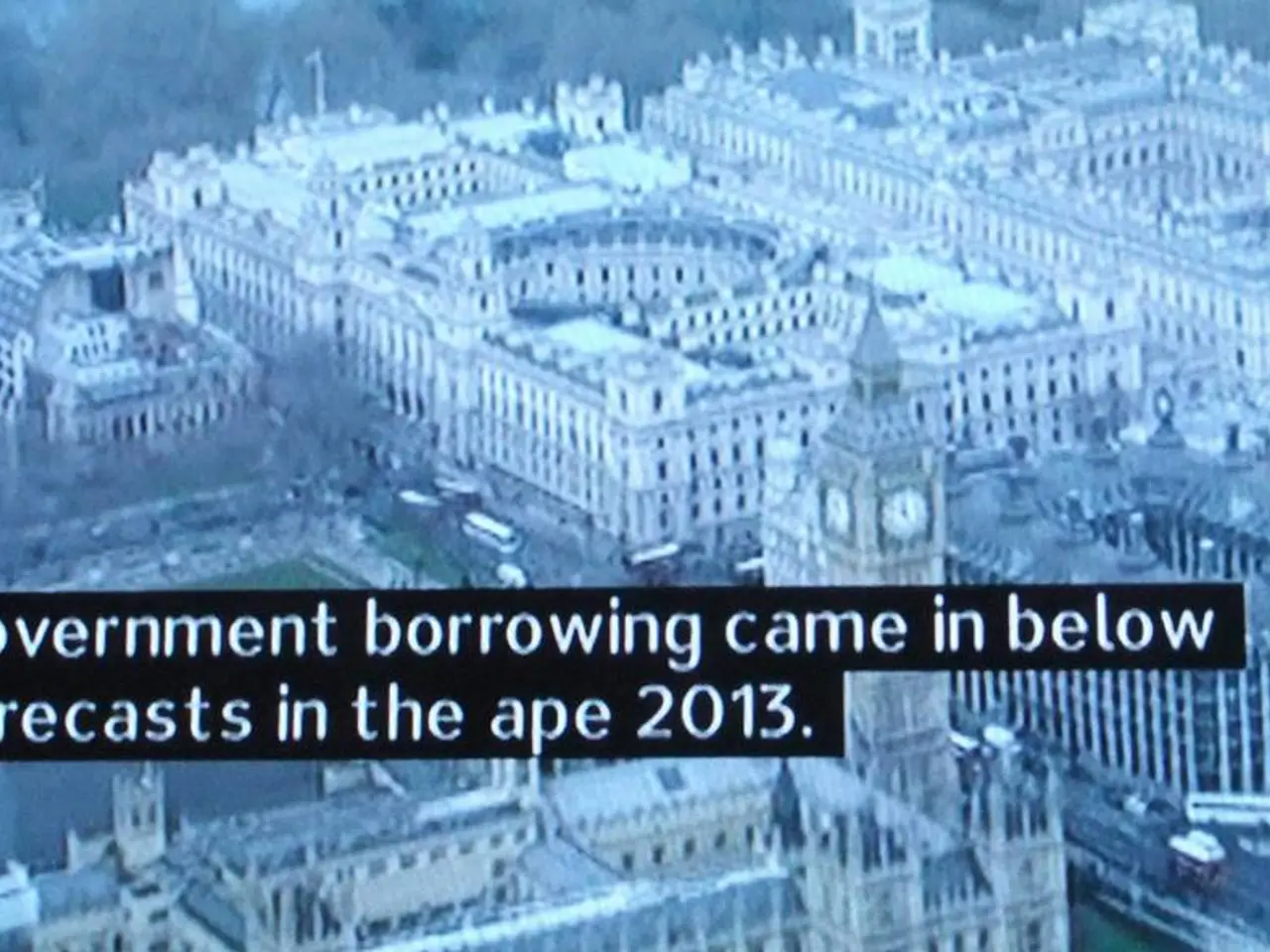Stock Market Rises on Anticipation of Reduced Taxes
Unfiltered Insights on America's Economic Climate
The trade policies of the current US Administration led by President Trump are stirring up a whirlpool of confusion and anticipation. The economic dance between the US and its global trading partners keeps financiers and analysts on their toes. Let's take a closer look at the twists and turns in the market and the impact on the economy.
Riding the Trade Tensions Rollercoaster
A cloud of uncertainty hangs over the US-China trade dispute, with signals of defrosting tensions bringing a much-needed sigh of relief to Wall Street investors. Despite a momentary chill from disheartening economic data, the Dow Jones, S&P-500, and Nasdaq Composite saw gains last week, pushing their valuations skyward.
However, President Trump's trade policies have ignited inflation levels, as evidenced by the rise in US import prices. Inflationary pressure is palpable, with the consumer sentiment index plummeting due to worries about growing prices.
A Mixed Bag for Stocks
Individual stocks have seen their fair share of ups and downs. Some companies managed to garner positive responses, while others struggled to make an impact. For example, Boeing, despite securing a significant order from Etihad Airlines, continues to face criticism for production shortages following the crash of two 737 MAX aircraft and the aftermath of the Covid pandemic.
Amidst the chaos, Charter Communications made waves by acquiring rival Cox Communications for $21.9 billion, leaving investors hopeful for a brighter cable and broadband future. However, corporations like Applied Materials and Take-Two Interactive failed to impress with their earnings, casting shadows over their stock prices.
Keeping an Eye on the Fed and Inflation
The US Federal Reserve faces an intricate conundrum. With inflation on the rise, the question arises whether interest rates need to be adjusted in response. Some analysts argue for tightening monetary policy, while others continue to back the current accommodative stance.
The dollar experienced a slight rebound amidst the stir of inflation concerns and expectations that the Fed would refrain from additional rate cuts. Oil prices displayed a similar trend, stabilizing after a tumultuous drop. Investors remain apprehensive, with worries about OPEC+ production cuts and potential Iranian deals adding fuel to the uncertainty fire.
The gold price, which had previously surged, lost all of its gains as the market moved away from safe haven investments in favor of riskier ventures.
For more on today's market activity, please see here.
Don't forget that these are just snapshots of the broader economic picture. To truly understand the impacts of Trump's trade policies, let's dive deeper into the implications for inflation, the stock market, and the overall economic outlook.
Impact on US Inflation
Trump's tariffs have resulted in both direct and indirect effects on US inflation. While the Consumer Price Index (CPI) has slowed in growth recently, many economists expect inflationary pressure to intensify in the coming months, with the personal consumption expenditures (PCE) price index predicted to reach 2.7% by year's end.
The imposition of tariffs on autos and auto parts could exacerbate costs for consumers and potentially raise prices in these sectors. However, the overall impact on CPI has been limited thus far.
Impact on the Stock Market
Trump's trade policies have imposed a complex influence on the stock market. As these policies articulate specific industry targets and change the investment landscape, stocks have responded accordingly. The volatility of the stock market is significantly impacted by geopolitical tensions, global trade dynamics, and the uncertainty surrounding trade negotiations.
For instance, the US government's ongoing dialogue with the European Union regarding agricultural tariffs and trade barriers is a potential momentum shifter for affected companies. As the promising initial signs in the US-China trade dispute continue, investor confidence in the short-term may outweigh concerns about trade disputes and the related implications on the economy.
It's essential to consider the broader context of other factors influencing market performance, such as overall economic conditions, interest rates, and the Federal Reserve's monetary policy.
General Economic Outlook
The economic landscape shaped by Trump's trade policies is fraught with challenges and issues that demand close scrutiny. Included in this complex equation are concerns about inflation management, potential labor market impacts, and the Fed's monetary policy decisions.
As the Federal Reserve grapples with balancing the fight against inflation and fostering economic growth, the possibility of interest rate adjustments looms on the horizon. Moreover, the tariffs have contributed to existing trade war dynamics, affecting global trade, and economic stability in the long term.
Taking everything into account, while Trump's trade policies have yet to spark significant inflation spikes, they continue to wield influence over the economic landscape, inflation forecasts, and stock market dynamics. Stay tuned for further updates and in-depth analysis as the trade policy saga unfolds.
- Trump's trade policies, particularly the US-China trade dispute, have affected various community and employment policies within American businesses, as shown by the impact on inflation levels and the overall economic outlook.
- In the realm of finance and investing, Wall Street investors are monitoring these trade tensions closely, as the announcements of defrosting tensions bring a sigh of relief, despite moments of economic data disappointment, such as the plummeting consumer sentiment index due to growing price worries.
- In the realm of politics and general news, analysts are debating the stance the Federal Reserve should take regarding controlling inflation, with some advocating for tightening monetary policy and others supporting the current accommodative stance, which has implications for various industries, including the stock market and the overall economy.




